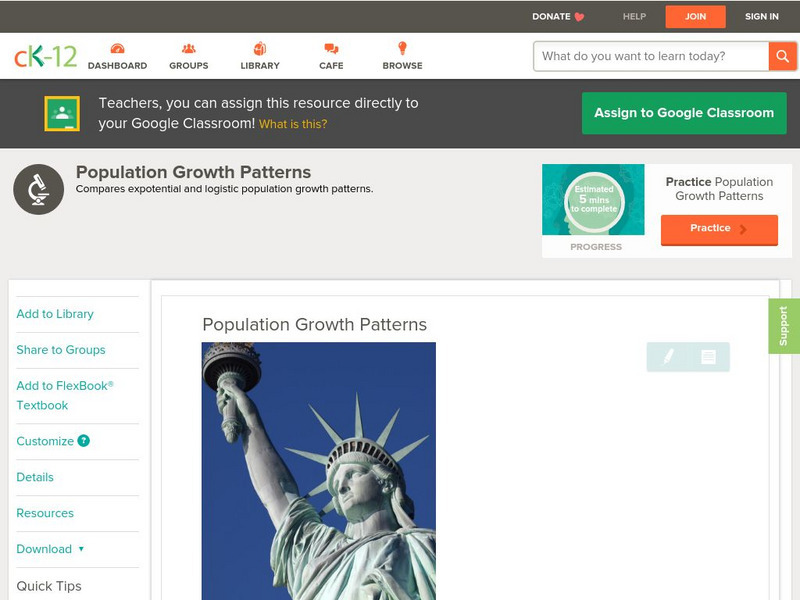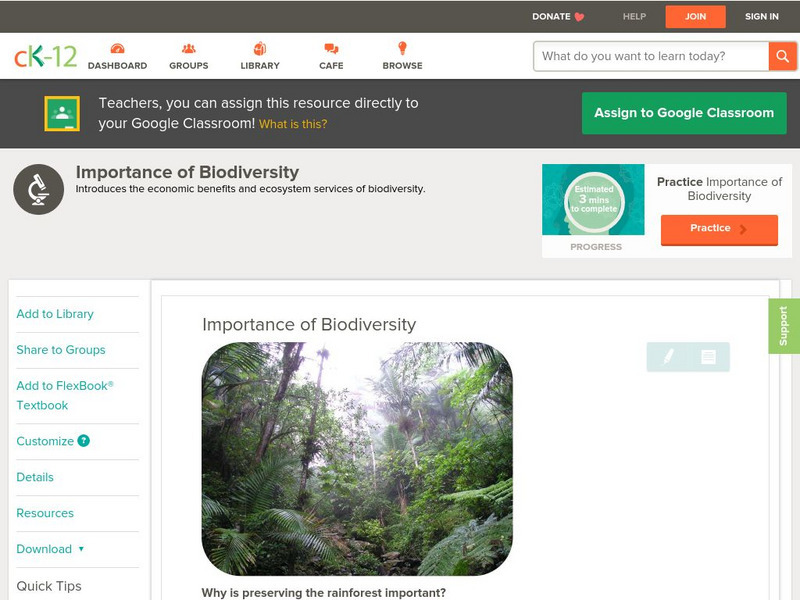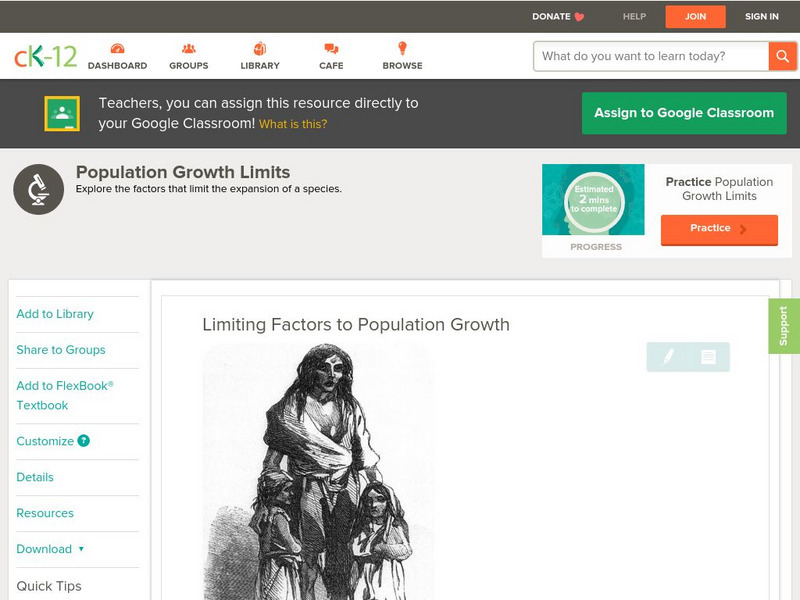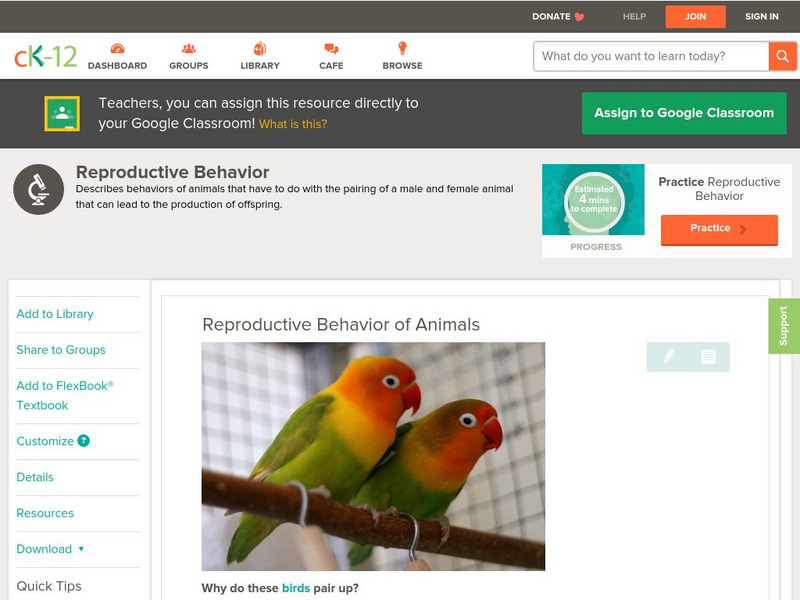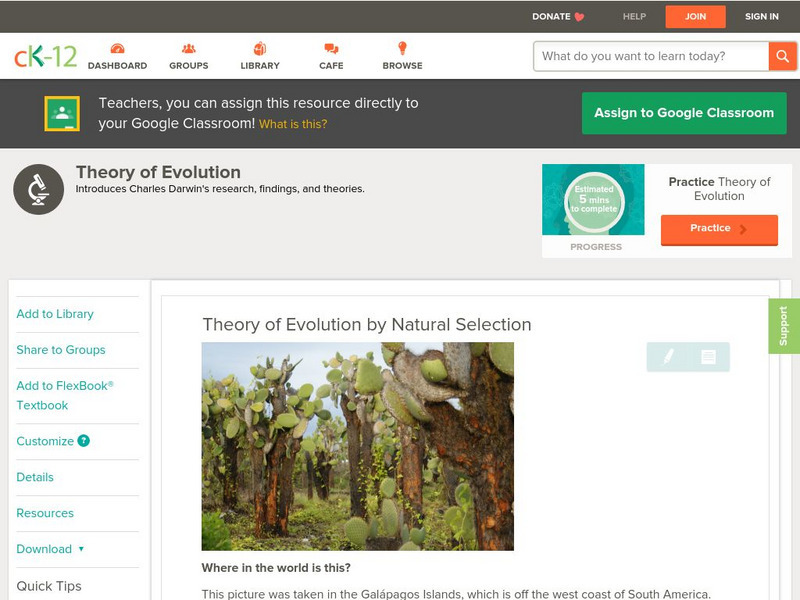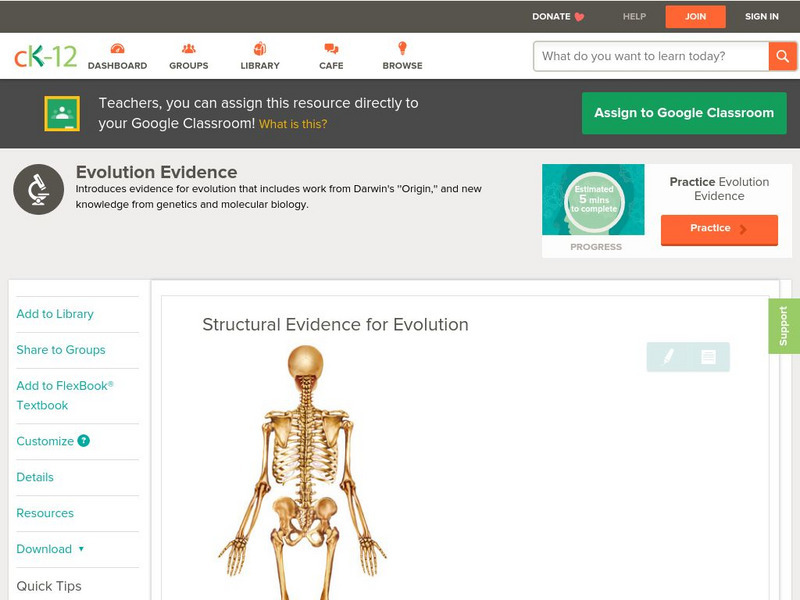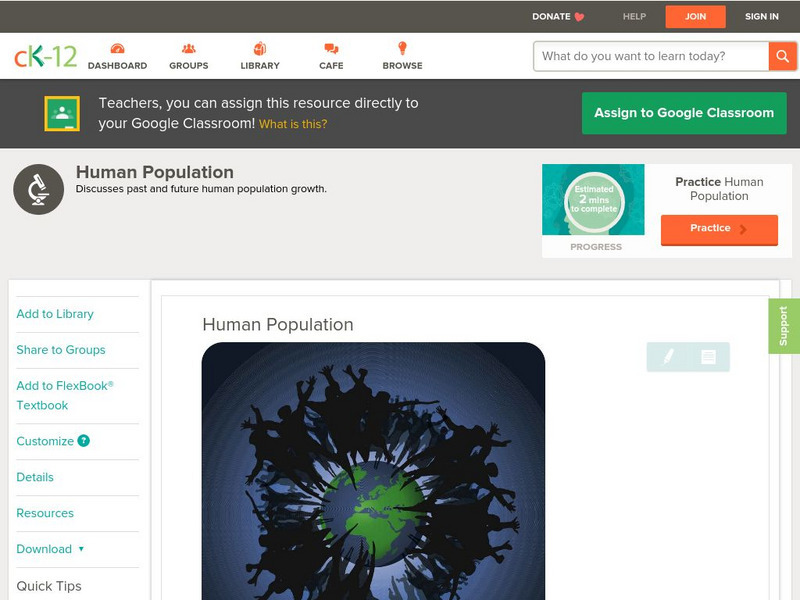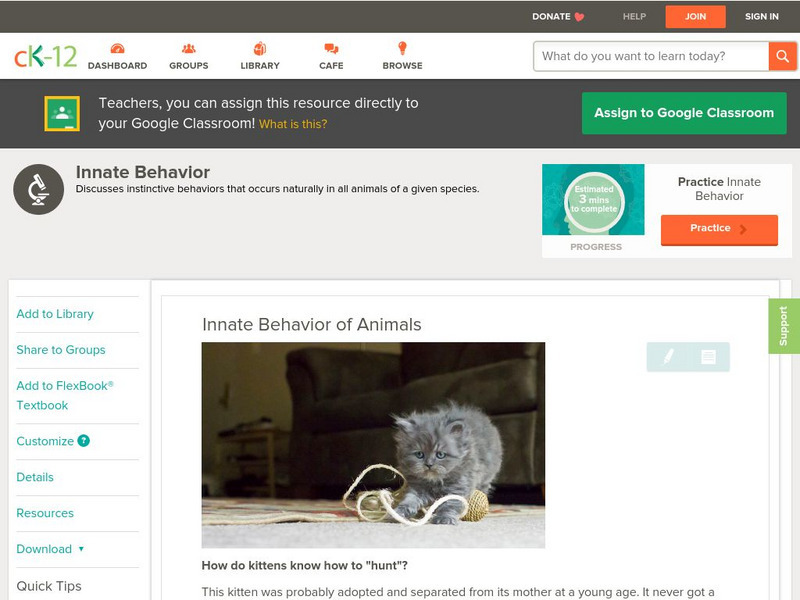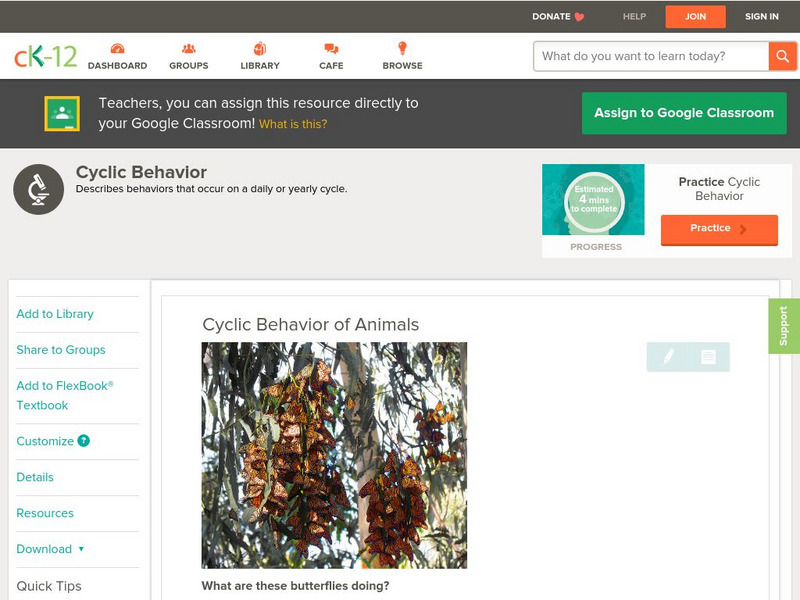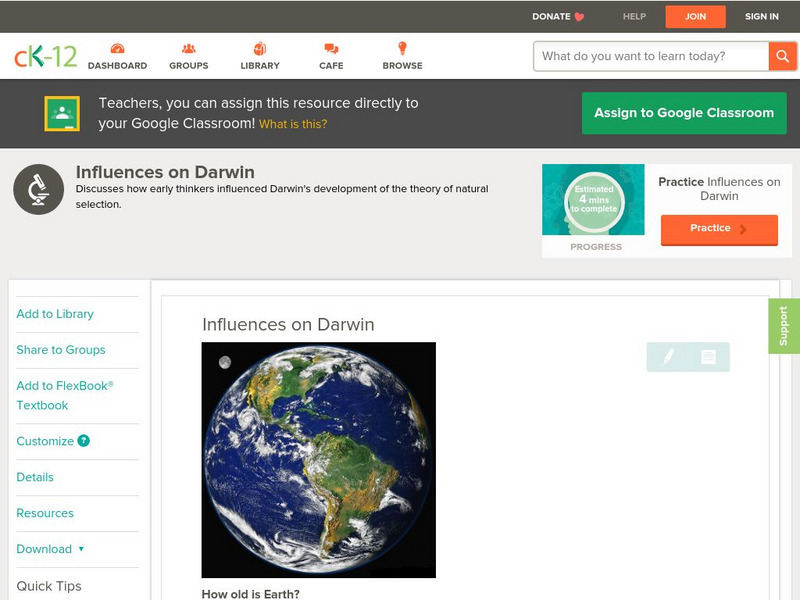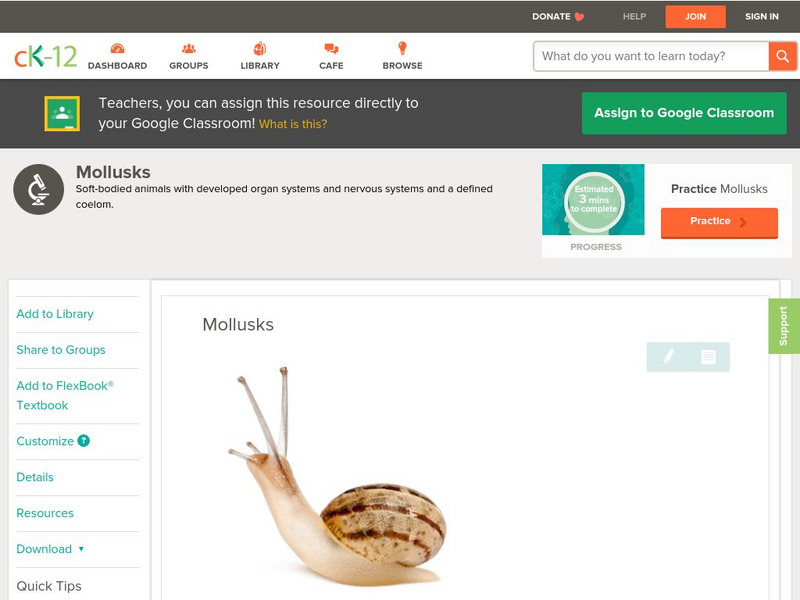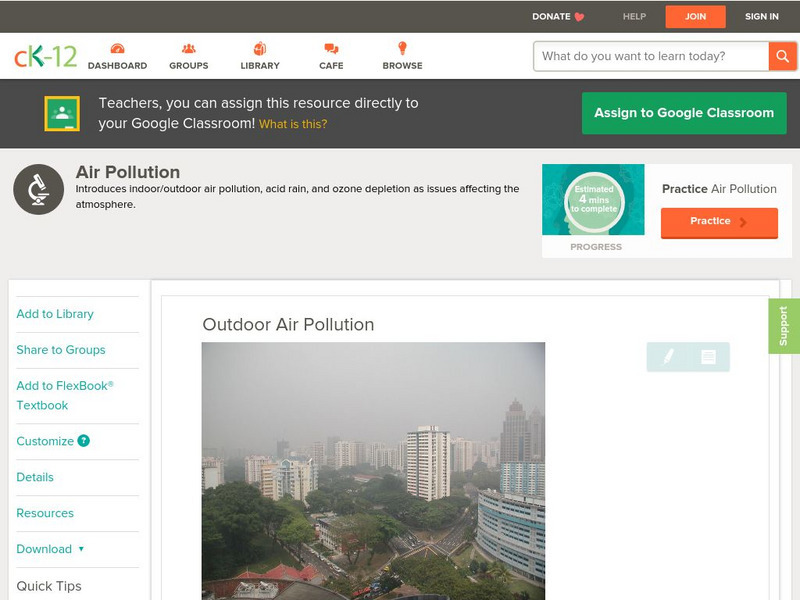CK-12 Foundation
Ck 12: Life Science: Population Growth Patterns
[Free Registration/Login may be required to access all resource tools.] What does population growth mean? You can probably guess that it means the number of individuals in a population is increasing. The population growth rate tells you...
CK-12 Foundation
Ck 12: Life Science: Importance of Biodiversity
[Free Registration/Login may be required to access all resource tools.] Biodiversity is a measurement of the amount of variation of the species in a given area. More specifically, biodiversity can be defined as the variety of life and...
CK-12 Foundation
Ck 12: Life Science: Limiting Factors to Population Growth
[Free Registration/Login may be required to access all resource tools.] For a population to be healthy, factors such as food, nutrients, water and space, must be available. Limiting factors are resources or other factors in the...
CK-12 Foundation
Ck 12: Life Science: Digestive System Organs
[Free Registration/Login may be required to access all resource tools.] The mouth and stomach are just two of the organs of the digestive system. Other digestive system organs are the esophagus, small intestine, and large intestine....
CK-12 Foundation
Ck 12: Life Science: Nonrenewable Resources
[Free Registration/Login may be required to access all resource tools.] A nonrenewable resource is a natural resource that is consumed or used up faster than it can be made by nature. Two main types of nonrenewable resources are fossil...
CK-12 Foundation
Ck 12: Life Science: Vitamins and Minerals
[Free Registration/Login may be required to access all resource tools.] Vitamins and minerals are also nutrients. They do not provide energy, but they are needed for good health. Learn more about vitamins and minerals in this learning...
CK-12 Foundation
Ck 12: Life Science: Reproductive Behavior of Animals
[Free Registration/Login may be required to access all resource tools.] Some of the most important animal behaviors involve mating. Mating is the pairing of an adult male and female to produce young. Adults that are most successful at...
CK-12 Foundation
Ck 12: Life Science: Theory of Evolution by Natural Selection
[Free Registration/Login may be required to access all resource tools.] Do you ever wonder why some birds are big like ostriches and some birds are small like robins? Or why a lion has a mane while a leopard has spots? In the 19th...
CK-12 Foundation
Ck 12: Life Science: Structural Evidence for Evolution
[Free Registration/Login may be required to access all resource tools.] Even though two different species may not look similar, they may have similar internal structures that suggest they have a common ancestor. That means both evolved...
CK-12 Foundation
Ck 12: Life Science: Human Population
[Free Registration/Login may be required to access all resource tools.] How quickly is the human population growing? If we look at worldwide human population growth from 10,000 BCE through to today, our growth looks like exponential...
CK-12 Foundation
Ck 12: Life Science: Taste and Smell
[Free Registration/Login may be required to access all resource tools.] Imagine you open a gallon of milk, and you suddenly smell a foul odor. Your sense of smell has informed you that the milk has spoiled. So you pour the spoiled milk...
CK-12 Foundation
Ck 12: Life Science: Mass Extinctions
[Free Registration/Login may be required to access all resource tools.] An organism goes extinct when all of the members of a species die out and no more members remain. Extinctions are part of natural selection. Species often go extinct...
CK-12 Foundation
Ck 12: Life Science: Innate Behavior of Animals
[Free Registration/Login may be required to access all resource tools.] Many animal behaviors are ways that animals act naturally. They are not learned behaviors. Cats are natural-born hunters. They don't need to learn how to hunt....
CK-12 Foundation
Ck 12: Life Science: Cyclic Behavior of Animals
[Free Registration/Login may be required to access all resource tools.] Many animal behaviors change in a regular way. They go through cycles. Some cycles of behavior repeat each year. Other cycles of behavior repeat every day. Learn...
CK-12 Foundation
Ck 12: Life Science: Flow of Energy
[Free Registration/Login may be required to access all resource tools.] When an herbivore eats a plant, the energy in the plant tissues is used by the herbivore. Every time energy is transferred from one organism to another, there is a...
CK-12 Foundation
Ck 12: Life Science: Competition
[Free Registration/Login may be required to access all resource tools.] Ecology is the study of how living organisms interact with each other and with their environment. Organisms interact with each other through various mechanisms, one...
CK-12 Foundation
Ck 12: Life Science: Food Chains and Food Webs: Food Webs
[Free Registration/Login may be required to access all resource tools.] Energy must constantly flow through an ecosystem for the system to remain stable. What exactly does this mean? Essentially, it means that organisms must eat other...
CK-12 Foundation
Ck 12: Life Science: Touch
[Free Registration/Login may be required to access all resource tools.] It might sound good to you to have a condition where you feel no pain. But actually this type of condition would be very dangerous. What would happen if you strained...
CK-12 Foundation
Ck 12: Life Science: Succession
[Free Registration/Login may be required to access all resource tools.] Ecosystems are "dynamic." This means that ecosystems change over time. Both natural forces and human actions cause ecosystems to change. Learn more about succession...
CK-12 Foundation
Ck 12: Life Science: Influences on Darwin
[Free Registration/Login may be required to access all resource tools.] When Darwin returned to England at the end of his voyage, he did not rush to announce his discoveries. He did not want to present any ideas unless he had strong...
CK-12 Foundation
Ck 12: Life Science: Role of Amphibians
[Free Registration/Login may be required to access all resource tools.] Humans have used amphibians for a number of purposes for thousands of years, if not longer. Amphibians play significant roles in many food webs and are thus an...
CK-12 Foundation
Ck 12: Life Science: Mollusks
[Free Registration/Login may be required to access all resource tools.] Mollusks are invertebrates that usually have a hard shell, a mantle, and a radula. Learn more about mollusks in this learning module produced by CK-12.
CK-12 Foundation
Ck 12: Life Science: Outdoor Air Pollution
[Free Registration/Login may be required to access all resource tools.] Air pollution is due to chemical substances and particles released into the air mainly by human actions. This pollution affects entire ecosystems around the world....
CK-12 Foundation
Ck 12: Life Science: Human Vision
[Free Registration/Login may be required to access all resource tools.] Sight, or vision, is the ability to see light. It depends on the eyes detecting light and forming images. It also depends on the brain making sense of the images, so...
